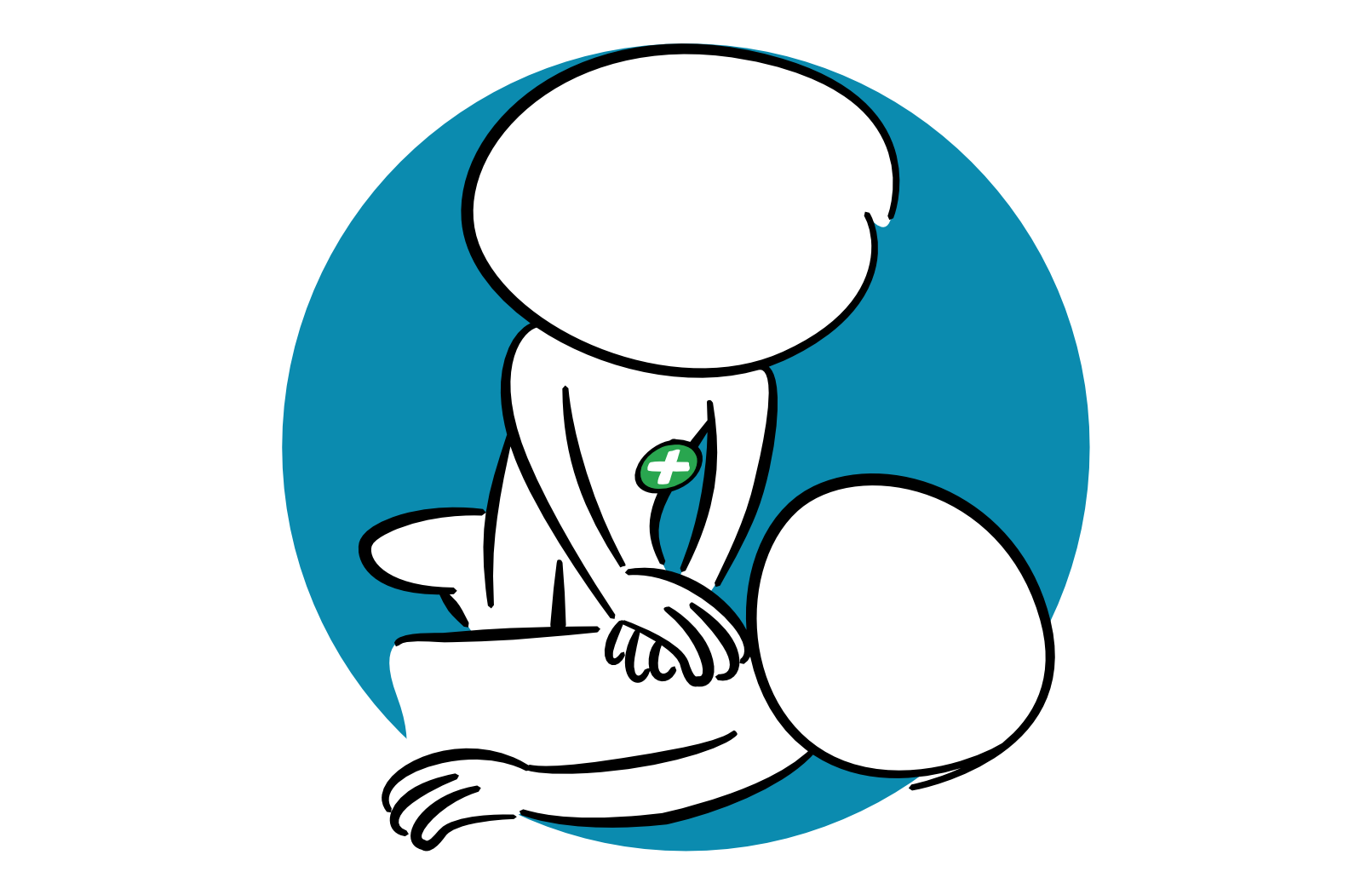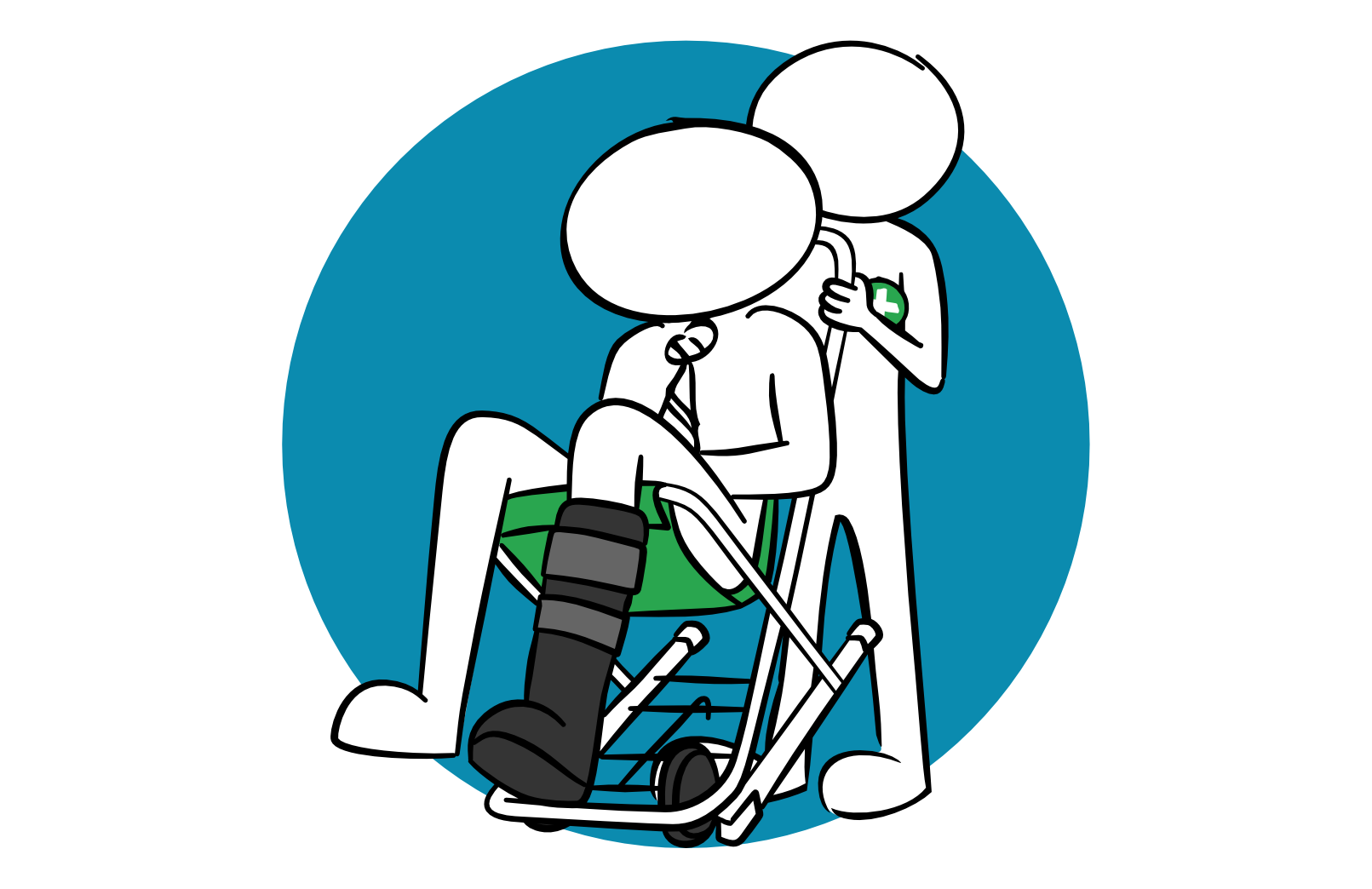Most of us will have seen a defibrillator — also called a Defib, AED, or Automated External Defibrillator. These life-saving devices are becoming a common sight in shops, schools, offices, residential homes and communities across the UK. As they become more affordable and accessible, more lives can be saved in cardiac emergencies.
But here’s something many people don’t realise: a defibrillator needs regular maintenance to stay in full working order. With Restart a Heart Day taking place on 16th October, Help First Aid Training is asking a vital question:
When did you last check your defibrillator?
Why a defibrillator is so important
A defibrillator is an incredible piece of life-saving equipment.
One of the main causes of cardiac arrest is ventricular fibrillation (VF) — when the heart develops an irregular rhythm and starts to quiver instead of pumping blood effectively.
The only treatment for VF is a controlled electric shock delivered by a defibrillator to restore a normal rhythm. If this shock is given within 3–5 minutes, survival rates can increase by as much as 50% to 70%.
So, if you’ve invested in a defibrillator, it’s worth spending a few minutes each week to ensure it’s in tip-top shape.
How to Keep Your Defibrillator in Working Order
Follow these simple maintenance tips from Help First Aid Training to make sure your AED is always ready to go:
1. Unpack and set up your defib
Our trainers often visit workplaces where the defibrillator is still in its delivery box!
In an emergency, that delay could literally be the difference between life and death.
Your defib should always have:
- Battery installed
- Pads attached
- AED Prep Kit ready nearby (see below)
2. Assign someone to check your defib regularly
A quick two-minute check every week can make all the difference.
3. Ensure it’s easy to find
Keep your defibrillator in a visible, easily accessible location — never locked away. Make sure everyone on site knows where it is.
4. Have an AED Prep Kit nearby
If your defib didn’t come with one, create your own. Your kit should include:
- Scissors
- Razor
- Kitchen roll or wipes
- Gloves and a face mask
This helps you prepare the casualty quickly and safely — removing clothing, sweat, or chest hair if needed.
Replace any used items after each use.
5. Check the pads
Pads have expiry dates and can lose their stickiness over time. Always replace them after use or when they expire.
6. Check the battery weekly
The battery naturally depletes and will issue a warning when it’s running low. Most defibs display a clear indicator — usually changing from green to red when replacement is needed.
When fitting a new battery, wait until the defib issues audible instructions so it connects properly.
Thinking of buying a defibrillator?
If you’re considering buying a defibrillator for your workplace or community setting, or if you’re unsure if your current device is up to date, we’re here to help.
Email: info@helpfirstaidtraining.co.uk
Call us: 01388 417303
Website: www.helpfirstaidtraining.co.uk
Get Hands-On Defibrillator Training
If you were suddenly faced with a cardiac emergency, would you know what to do?
At Help First Aid Training, we believe that preparation and practical experience are key. Our Defibrillator Competent User Course gives every participant hands-on experience using a defib, along with expert advice and confidence-building practice.
Find out more about our Defibrillator Competent User Course; https://helpfirstaidtraining.co.uk/courses/defibrillator-competent-user
What’s more, we’re happy to deliver this training to any workplace in the North-East of England. We cover Darlington to Durham, Redcar to Richmond, Newton Aycliffe to North Shields and everywhere in between.
CPR and defibrillation are also covered on our open courses, which take place in our training facility in Shildon, County Durham.
- Emergency First Aid at Work
- First Aid at Work
- Re-qualification First Aid at Work
- Paediatric First Aid (Ofsted compliant - 12 hours)
Website: www.helpfirstaidtraining.co.uk
Email: info@helpfirstaidtraining.co.uk
Call us: 01388 417303
statistic source; www.resus.org.uk
Updated October 2025
Related News
World Heart Day – Why Heart Health and CPR Training Matter
World Heart Day happens on 29th September, so lets take the opportunity to explore some important facts about the heart, cardiac arrest and the vital role of CPR and defibrilation.
What are my Responsibilities as a First Aider?
You’ve completed your first aid course – congratulations! But now you’re a qualified first aider…what does that actually mean in practice?
Supporting Positive Wellbeing in the Workplace
Mental Health Awareness Week is a powerful reminder of the importance of emotional wellbeing – not just in our personal lives, but also in our working lives.



